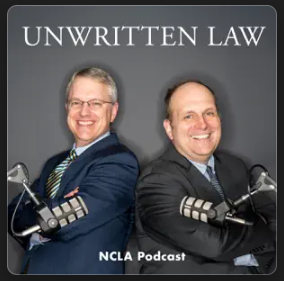Post-Loper Debate on Section 230 and the FCC
By
| May 1, 2025
Lawrence J. Spiwak, President of the Phoenix Center for Advanced Legal & Economic Public Policy Studies, writes on the FedSoc Blog that the “FCC still can’t interpret Section 230:”
Which brings me to proponents of the FCC’s power to interpret Section 230.
About a month after I wrote my original post, Seth Cooper of the Free State Foundation wrote a response entitled Power to Persuade: The FCC’s Authority to Interpret Section 230 Post-Loper Bright. While Mr. Cooper agreed with me that Loper Bright eliminated the FCC’s power to make binding authoritative legal interpretations of federal statutes, he argued that Loper Bright nonetheless “recognized that agencies retain the power to interpret the meaning of statutes within their jurisdiction and that, pursuant to Skidmore v. Swift & Co., courts still should consider agency views for their ‘power to persuade, if lacking power to control.’” Thus, argued Mr. Cooper, “a Trump 2.0 FCC possesses the power to issue a policy statement, declaratory ruling, and/or published report offering its interpretation of Section 230’s provisions, such as the meaning of ‘good faith,’ as a source of guidance for courts.”
Skidmore notes that agency “rulings, interpretations and opinions . . . while not controlling upon the courts by reason of their authority, do constitute a body of experience and informed judgment to which courts and litigants may properly resort for guidance.” However, Mr. Cooper fails to acknowledge that the “weight [a court should accord to] such a judgment in a particular case” depends on four factors: (1) “the thoroughness evident in [the agency’s] consideration”; (2) “the validity of [the agency’s] reasoning; (3) the agency’s “consistency with earlier and later pronouncements”; and (4) “all those factors which give [the agency] power to persuade, if lacking power to control.”
Skidmore deference is case-dependent, and the FCC has yet to tip its analytical hand in any “policy statement, declaratory ruling, and/or published report,” so it is difficult to prognosticate how a court would view factors (1), (2), and (4).
But the third factor—“consistency with earlier and later pronouncements”—would clearly be problematic for the FCC. The Commission has never attempted to interpret Section 230, so there are no “earlier and later pronouncements” that a reviewing court could compare. The only thing that has been consistent has been the absence of agency action (on a bipartisan basis, no less). Such inaction by the FCC is unsurprising for two obvious and related reasons. First, as noted above, Section 230 does not provide the Commission with any enforcement or other regulatory responsibilities but is instead simply an affirmative defense for civil litigation. Second, and more broadly, digital platforms generally do not engage in any jurisdictional activity covered by the Communications Act. The FCC simply never had any pressing reason to address the question. Thus, any new action by the Commission to interpret Section 230 would be terra nova.


